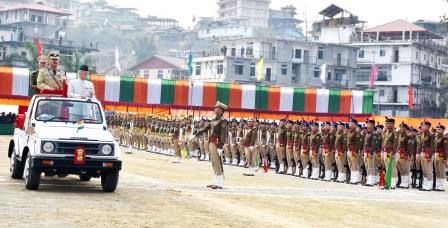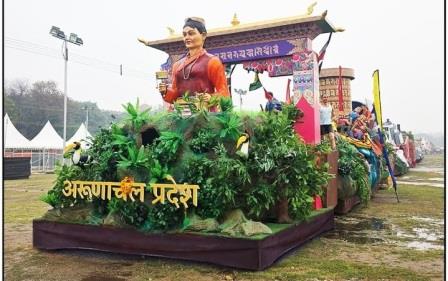-
 Arunachal celebrates 77th Republic Day with fervour
Arunachal celebrates 77th Republic Day with fervour
-
‘Local Food Contest’ marks National Tourism Day
-
AFTF reiterates scrapping of 80:20 recruitment ratio in Arunachal Pradesh
-
Governor, First Lady host ‘At Home’ reception
-
Papum Pare DA holds interaction with newly elected ZPMs
-
Indian Army conducts ‘Know Your Army’ campaign
-
 Arunachal tableau on R-Day spotlights state’s emergence as Adventure Capital…
Arunachal tableau on R-Day spotlights state’s emergence as Adventure Capital…
-
Etalin marks National Voters’ Day, encourages youth participation in democracy
-
Sona reviews PMGSY, VVP projects in Itanagar Circle
-
Lok Bhavan celebrates UP Diwas
Immunization is one of the most cost-effective interventions to prevent the suffering that comes from avoidable sickness, disability and death. The benefits of immunization are not restricted to improvements in health and life expectancy but also have the social and economic impact at both community and national levels.
The GVAP (Global Vaccine Action Plan) launched in 2012 has been a formidable step towards providing equitable access to vaccines for people living in low-income countries. Under GVAP, 194 countries came together to commit better healthcare for the world and with a promise for a disease-free future. India too stepped forward, making considerable efforts in enhancing its public health framework.
India introduced its flagship immunisation programme — Mission Indradhanush — in 2014, calling into action India’s urgent need to improve the 65 per cent immunisation rate achieved in its Universal Immunisation Programme (UIP) since 1985. Further, new vaccines were added to the UIP in realising India’s obligations to GVAP 2020.
Though some improvement has taken place in the past few years, the country still accounts for the largest number of children who are not immunized: 7.4 million.
Some of the challenges to immunization include limited capacities of staff, particularly in poor-performing states and at the field level, and gaps in key areas such as predicting demand, logistics and cold chain management, which result in high wastage rates.
In remote pockets of Arunachal, healthcare personnel are often threatened of dire consequences by parents and wards during routine immunization process. There is an innate fear among rural, uneducated folks regarding the side effects of immunization which is generally mild fever which is absolutely normal. Therefore, it is imperative that awareness is created.
In the run up to the ensuing Measles Rubella vaccination campaign which will be launched in Arunachal on February 1 next, the National Health Mission has made an attempt to reach out to stakeholders for the success of the campaign and its gesture in seeking assistance from religious leaders for the same might very well prove a turning point in overcoming the barrier.

Kenter Joya Riba
(Managing Editor)She is a graduate in Science with post graduation in Sociology from University of Pune. She has been in the media industry for nearly a decade. Before turning to print business, she has been associated with radio and television.
Email: kenterjoyaz@easternsentinel.in / editoreasternsentinel@gmail.com
Phone: 0360-2212313

